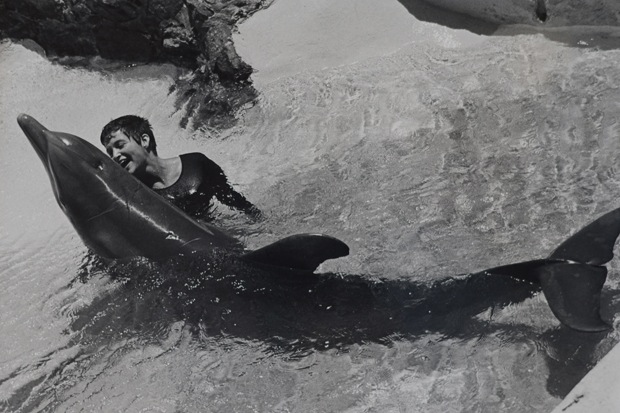Don’t watch The Sinner (originally on Netflix; now on BBC4) because, despite your better judgment, you’ll only get addicted after its irresistibly grabby opening. A pretty if slightly distraite mother called Cora Tannetti — Jessica Biel — is on a lakeside beach with her bearded beta cuck husband and their little boy, surrounded by other relaxed groups of weekend picnickers. Suddenly, she takes huge exception to a hunky male sitting nearby and derangedly stabs him to death with a fruit knife. Why?
That’s why it’s being sold as a new genre — the ‘whydunit’ — because obviously we know whodunit already. With seven more episodes to go, it’s probably safe to assume that the answer is much more complicated — but not nearly as plausible — as the one I gave to the Fawn at the end of episode one. ‘I know exactly why she did it,’ I said. ‘Why?’ said the Fawn. ‘Because she’s a woman…’ I said.
In fact, after episode one, the sensible, rational part of me wanted to call it quits, because a) I’d already solved the mystery, at least to my own satisfaction, b) you do feel a bit like you’re being strung along and manipulated by an increasingly labyrinthine and unlikely back story and c) its real target market, quite obviously, are not balanced grown-ups but deranged, hormonal teenage girls and that insatiable appetite they have for the sordid and sick.
It’s shot like arthouse, high-definition porn. (Not, ahem, that I’d know about such things. I’m just hazarding a guess….) In every other scene, some chap’s hand is straying towards a girl’s beckoning crotch or patting her curvy buttocks or tweaking her pert breasts, with the result that quite a lot of the time Fawn and I had to watch through our fingers going ‘No! Nooo! Is it over yet?’. Fine, if you wanted to get in the mood for a shag yourself, possibly. But a bit distracting if all you’re really after is for the plot to move on.
When it does move on, you almost wish it hadn’t because the further down the rabbit hole you go the weirder it gets. The problem, you start to fear, is that the final explanation could involve almost anything — a random passing spaceship like the one that rescues Brian in the Monty Python movie; vampires, like the ones that appear quite unexpectedly halfway through From Dusk Till Dawn. But I suppose that is in the nature of the whydunit genre. Character, motive and back story have no option but to be impossibly convoluted and deceptive because if they weren’t you’d never get eight satisfying episodes out of it.
Apart from irritable curiosity, what keeps you going is the acting. Biel, as the murderess Cora, is by turns remote and unhinged, pitiably frail and needy, and almost sympathetic. So when the other main star of the show — Bill Pullman as detective Harry Ambrose — sets about unpicking her past in order to unravel her motivation for this apparently vile, unjustifiable homicide, you’re rooting for him to succeed. Clearly Cora is one messed up, crazy, not desperately likeable woman, but you still don’t want her to rot in jail for ever.
Also, the script, adapted from a novel by the German crime writer Petra Hammesfahr, does work very hard to persuade you that what you’re watching is believable and (as the kids say) relatable, rather than just preposterous, melodramatic kitsch. There’s an illuminating subplot, for example, about Ambrose’s on-off clandestine relationship with a gloriously sleazy trailer-trash waitress, who offers something his more elegant wife cannot provide: the thrill of being abused like a dog and having his fingers crushed under her stilettos. ‘We all have secrets,’ Ambrose explains at one point, probably unnecessarily.
My beef is that no matter how watchable it is — and it is: slickly shot, nicely edgy ambient score, all manner of unexpected twists and turns — you do feel a bit sullied and exploited afterwards. As so often with this genre — high-gloss teen-girl schlock — you feel it engages only tangentially with the world we actually live in and dwells with rather too much relish on one in which every other attic contains incestuous children imprisoned by their tyrannical grandmother and every basement an Elisabeth Fritzl. It’s almost always female writers who dream up this stuff; and women who constitute the majority of their audience. We men should be afraid, very afraid.







Comments